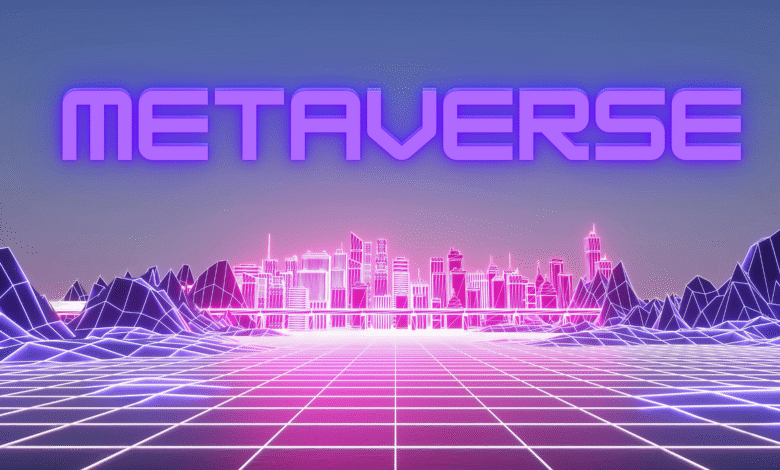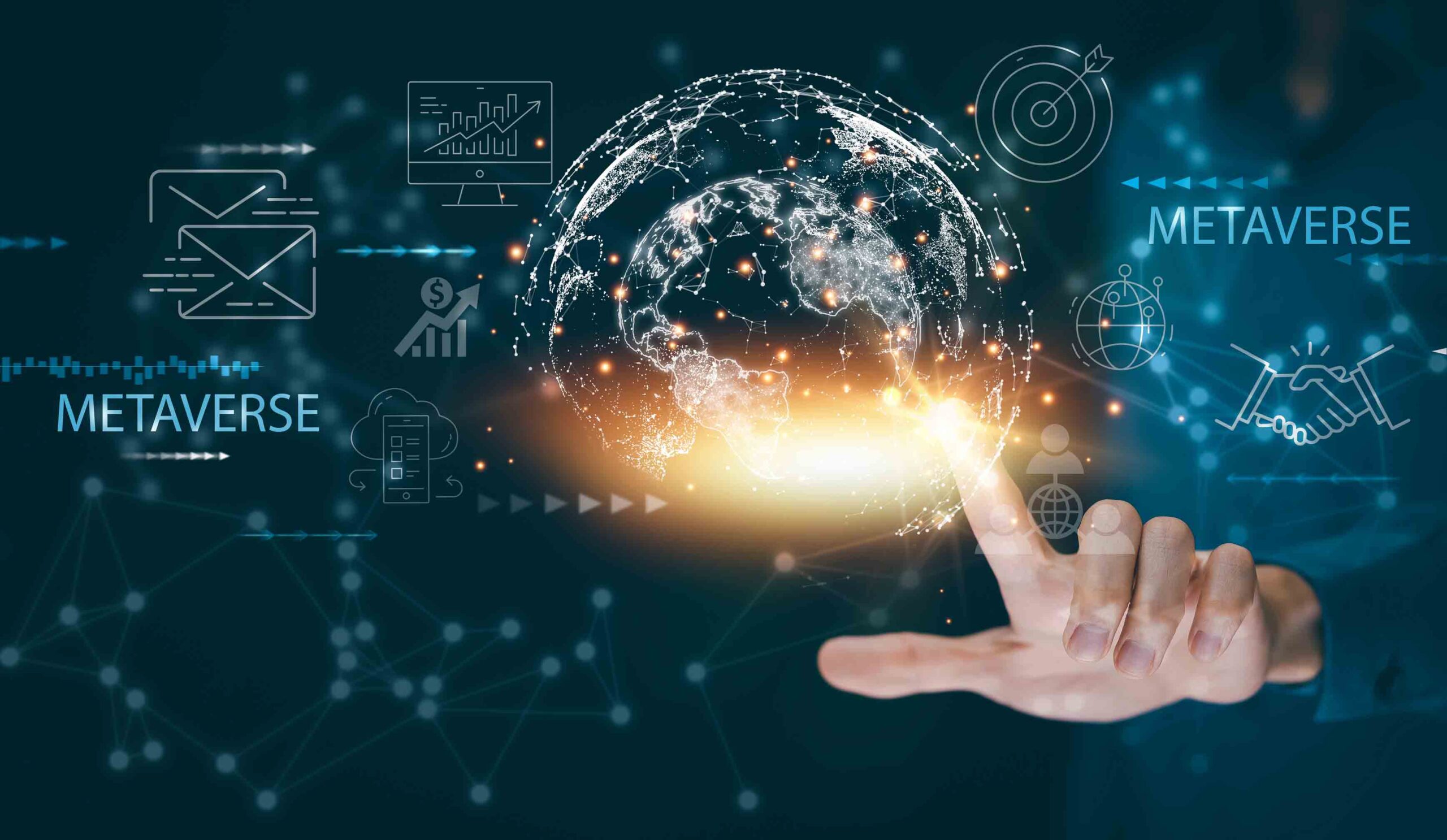
The digital landscape has revolutionized how we connect, collaborate, and celebrate. As businesses and individuals seek innovative ways to engage audiences, metaverse event planning services have emerged as the ultimate solution for creating unforgettable virtual experiences. These specialized services combine cutting-edge technology with creative expertise to deliver immersive events that transcend physical limitations. Whether you’re planning a corporate conference, product launch, wedding, or social gathering, professional metaverse event planning services can transform your vision into an extraordinary digital reality that captivates participants from around the globe.
The Metaverse Event Revolution
The metaverse represents a persistent, shared virtual space where people interact through avatars in digitally created environments. Unlike traditional video conferencing, metaverse events offer three-dimensional, interactive experiences that simulate real-world gatherings while providing unique digital advantages.
Professional event planners specializing in virtual environments understand the nuances of creating engaging metaverse experiences. They leverage platforms like Horizon Worlds, VRChat, Spatial, and custom-built environments to design events that feel authentic and memorable.
Key Benefits of Virtual Event Planning
Virtual events in the metaverse offer unprecedented advantages over traditional gatherings. Participants can attend from anywhere in the world, eliminating travel costs and time constraints. The immersive nature of these platforms creates deeper engagement levels compared to standard video calls.
Event organizers can create impossible-to-replicate physical experiences, such as floating venues, gravity-defying performances, and instant environment changes. These capabilities allow for more creative freedom and memorable moments that participants will discuss long after the event concludes.
Cost-effectiveness represents another significant advantage. Without venue rentals, catering, or travel expenses, organizations can allocate budgets toward enhanced digital experiences and broader audience reach.
Comprehensive Metaverse Event Planning Services

Strategic Planning and Consultation
Professional metaverse event planners begin every project with comprehensive consultation sessions. They assess client objectives, target audience demographics, technical requirements, and budget constraints to develop customized event strategies.
During this phase, planners help clients understand platform capabilities, audience accessibility requirements, and technical specifications needed for successful virtual events. They provide detailed timelines, milestone markers, and contingency plans to ensure smooth execution.
Expert consultants also advise on compliance requirements, privacy considerations, and accessibility standards that may apply to virtual events, particularly for corporate or educational gatherings.
Platform Selection and Customization
Choosing the right metaverse platform is crucial for event success. Professional planners evaluate various options based on audience size, interaction requirements, visual fidelity needs, and technical capabilities.
Popular platforms each offer unique advantages. Horizon Worlds provides social interaction features and user-friendly interfaces. Spatial excels at professional presentations and collaborative experiences. VRChat offers extensive customization options and large community support.
Many professional services also provide custom platform development for clients requiring specific features or branding requirements. These bespoke solutions ensure complete control over the user experience and visual presentation.
Also More: Metaverse Cryptos: The Future of Virtual Economies
Virtual Environment Design and Development
Creating immersive virtual environments requires specialized design skills and technical expertise. Professional designers craft spaces that serve functional event purposes while providing visually stunning experiences.
Environmental design considerations include traffic flow management, acoustic planning for audio clarity, interactive element placement, and accessibility features for users with disabilities. Designers also incorporate branding elements, sponsor recognition areas, and networking spaces that encourage participant interaction.
Advanced features might include dynamic lighting systems, weather effects, particle systems, and interactive objects that respond to user actions. These elements create memorable experiences that differentiate metaverse events from traditional virtual meetings.
Types of Events Perfect for Metaverse Platforms
Corporate Events and Conferences
Business gatherings in the metaverse offer unique networking opportunities and presentation capabilities. Attendees can move freely between sessions, engage in spontaneous conversations, and participate in interactive demonstrations that wouldn’t be possible in traditional formats.
Corporate metaverse events often include virtual trade show floors, breakout rooms for smaller discussions, and social areas for informal networking. Companies can showcase products through 3D models, interactive demonstrations, and immersive brand experiences.
Professional event planners ensure corporate events maintain appropriate business atmospheres while leveraging metaverse capabilities for enhanced engagement and memorable experiences.
Educational Workshops and Training
Educational institutions and corporate training departments increasingly utilize metaverse platforms for immersive learning experiences. Virtual classrooms can simulate real-world environments, historical settings, or fantastical locations that enhance educational objectives.
Students can manipulate 3D models, conduct virtual experiments, and collaborate on projects in ways impossible through traditional e-learning platforms. Medical students might explore anatomical models, engineering students could examine complex machinery, and history students could visit recreated ancient civilizations.
Training programs benefit from safe simulation environments where employees can practice procedures, handle emergency scenarios, or learn new skills without real-world consequences or risks.
Social Celebrations and Personal Events
Personal celebrations like weddings, birthdays, and family reunions gain new dimensions in metaverse environments. Families separated by distance can gather in beautifully designed virtual venues that accommodate everyone comfortably.
Wedding planners specializing in metaverse services create romantic environments with customizable decorations, music systems, and photography options. Guests can dress their avatars in formal attire, participate in ceremony rituals, and celebrate together despite physical separation.
Birthday parties and anniversaries become extraordinary experiences with themed environments, interactive games, and unique entertainment options that create lasting memories for all participants.
Product Launches and Marketing Events
Marketing teams leverage metaverse event planning services to create buzz-worthy product launches that generate significant media attention and customer engagement. Virtual venues can be designed specifically around product themes, creating cohesive brand experiences.
Interactive product demonstrations allow potential customers to examine features, test functionality, and ask questions in real-time. Gamification elements, exclusive virtual merchandise, and limited-time experiences create urgency and excitement around product announcements.
Influencer partnerships and celebrity appearances become more accessible in virtual environments, where travel and scheduling constraints are minimized while audience reach is maximized.
Essential Components of Professional Virtual Event Services
Technical Infrastructure Management
Professional metaverse event planning services include comprehensive technical support throughout the entire event lifecycle. This encompasses server management, bandwidth optimization, security protocols, and real-time troubleshooting capabilities.
Technical teams monitor platform performance, user connectivity issues, and audio-visual quality to ensure seamless experiences for all participants. They implement backup systems and contingency plans to address potential technical difficulties quickly and efficiently.
Security measures protect against unauthorized access, disruptive behavior, and data breaches. Professional services implement user authentication, moderation tools, and privacy controls appropriate for each event’s requirements.
Avatar Creation and Customization Services
Professional avatar design services help participants create digital representations that align with event themes and personal preferences. This might include custom clothing options, branded accessories, or thematic character designs.
For corporate events, professional services often provide standardized avatar options that maintain appropriate business appearances while allowing individual personalization. Wedding services might offer formal attire options and couple coordination features.
Advanced avatar services include motion capture integration, facial expression mapping, and gesture recognition that enhance natural interaction capabilities during virtual events.
Content Creation and Interactive Elements
Engaging metaverse events require dynamic content that takes advantage of virtual environment capabilities. Professional planners develop interactive presentations, 3D demonstrations, gamified experiences, and multimedia content optimized for virtual platforms.
Content creators develop virtual exhibits, interactive displays, and educational materials that participants can explore individually or collaboratively. They also design entertainment elements like virtual performances, interactive games, and social activities that encourage participation.
Professional services ensure all content is optimized for various devices and internet connection speeds, providing consistent experiences across different user configurations.
Live Event Management and Support
During virtual events, professional management teams provide real-time support, moderate interactions, and guide participants through platform features. They handle technical issues, answer questions, and ensure events proceed according to planned schedules.
Event managers coordinate with speakers, entertainers, and special guests to ensure smooth transitions and professional presentations. They also manage audience interaction features like Q&A sessions, polls, and networking activities.
Professional support staff monitor chat functions, manage breakout rooms, and assist participants who encounter difficulties navigating virtual environments or accessing event features.
Choosing the Right Metaverse Event Planning Partner
Evaluating Experience and Expertise
When selecting metaverse event planning services, assess providers’ experience with similar events and their technical capabilities. Review portfolios showcasing previous virtual events, noting creativity, technical execution quality, and client satisfaction levels.
Experienced providers understand common challenges and have developed solutions for typical virtual event obstacles. They can provide realistic timeline estimates, accurate budget projections, and proven strategies for maximizing participant engagement.
Look for providers who stay current with emerging technologies, platform updates, and industry best practices. The metaverse landscape evolves rapidly, requiring partners who adapt quickly to new opportunities and capabilities.
Technology Partnerships and Platform Access
Professional metaverse event planning services maintain partnerships with leading virtual platforms and technology providers. These relationships often provide access to advanced features, priority support, and cost advantages for clients.
Evaluate potential partners’ technical infrastructure, including server capabilities, development resources, and support availability. Reliable technical foundations are essential for successful virtual events, particularly those with large audiences or complex requirements.
Consider whether providers offer flexible platform options or specialize in specific technologies. Some events benefit from platform-agnostic approaches, while others require deep expertise in particular virtual environments.
Customization Capabilities and Creative Services
Assess potential partners’ ability to create unique, branded experiences that align with your event objectives and organizational identity. Review examples of custom environment designs, interactive features, and creative solutions they’ve developed for previous clients.
Creative capabilities should extend beyond basic platform setup to include storytelling, user experience design, and innovative interaction methods. The best metaverse event planning services combine technical expertise with creative vision to deliver memorable experiences.
Consider whether providers offer end-to-end services, including pre-event marketing, participant onboarding, and post-event analytics. Comprehensive services often provide better value and more cohesive experiences than fragmented approaches.
Future Trends in Virtual Event Planning
Artificial Intelligence Integration
AI technologies are increasingly integrated into metaverse event planning services to enhance personalization, automate routine tasks, and provide intelligent recommendations. AI-powered chatbots assist participants, while machine learning algorithms optimize audio-visual quality in real-time.
Predictive analytics help event planners anticipate audience behavior, identify potential technical issues, and optimize event flows for maximum engagement. AI also enables automatic language translation, making global events more accessible to diverse audiences.
Future developments may include AI-generated content, intelligent avatar behaviors, and automated event management systems that reduce manual oversight requirements while improving participant experiences.
Enhanced Immersion Technologies
Advancing virtual and augmented reality technologies will make metaverse events increasingly immersive and realistic. Improved haptic feedback systems will enable participants to “feel” virtual objects and environments, while enhanced audio systems create realistic spatial sound experiences.
Eye-tracking and facial expression recognition will enable more natural avatar interactions, while advanced graphics rendering will create photorealistic virtual environments indistinguishable from physical spaces.
These technological improvements will expand the types of events suitable for virtual platforms and increase participant satisfaction with digital experiences.
Hybrid Event Integration
Future metaverse event planning services will increasingly focus on hybrid experiences that seamlessly blend physical and virtual attendance options. These events allow some participants to attend in person while others join virtually, creating inclusive experiences for diverse audiences.
Advanced integration technologies will enable virtual participants to interact meaningfully with physical attendees, participate in hands-on activities, and feel fully included in event proceedings. This approach maximizes accessibility while maintaining the benefits of in-person gatherings.
Hybrid events represent significant opportunities for expanding audience reach while accommodating various preferences, budgets, and accessibility requirements.
Cost Considerations and Budget Planning
Understanding Pricing Models
Metaverse event planning services typically utilize various pricing models depending on event complexity, duration, and participant numbers. Some providers offer fixed packages for standard event types, while others provide custom quotes based on specific requirements.
Consider the total cost of ownership, including platform licensing, technical support, content creation, and ongoing maintenance requirements. While virtual events often cost less than physical gatherings, professional metaverse services require significant investment in technology and expertise.
Budget for contingencies and technical support during events, as virtual platforms may require real-time adjustments or problem resolution. Professional services typically include these costs in comprehensive packages.
Return on Investment Calculation
Evaluate virtual event ROI by considering saved travel costs, increased audience reach, reduced venue expenses, and enhanced engagement metrics. Many organizations find that metaverse events provide better value than traditional alternatives, particularly for recurring events or large audiences.
Consider long-term benefits, including recorded content, participant data insights, and reusable virtual assets. Professional metaverse event planning services often provide analytics and reporting that help quantify event success and inform future planning decisions.
Factor in reduced environmental impact, increased accessibility, and global reach capabilities when calculating total value provided by virtual event investments.
Conclusion
The future of events lies in immersive digital experiences that connect people across geographical boundaries while providing unprecedented creative possibilities. Professional metaverse event planning services combine technical expertise, creative vision, and comprehensive support to deliver extraordinary virtual experiences that exceed participant expectations.
Whether you’re organizing corporate conferences, educational workshops, social celebrations, or marketing events, specialized virtual event planners can transform your vision into engaging digital realities. From initial consultation through post-event analysis, these services provide end-to-end solutions that ensure successful outcomes and memorable experiences. As technology continues advancing and audiences become increasingly comfortable with virtual interactions, metaverse events will become essential tools for organizations seeking to maximize reach, minimize costs, and create lasting impressions. Don’t let your next event be limited by physical constraints – partner with experienced metaverse event planning services to unlock the full potential of virtual gatherings.
FAQs
What equipment do participants need for metaverse events?
Most metaverse events are accessible through standard computers, tablets, or smartphones without requiring expensive VR headsets. Professional event planners ensure broad accessibility by selecting platforms compatible with common devices. While VR headsets provide enhanced immersion, they’re typically optional rather than required for participation.
How long does it take to plan a metaverse event?
Planning timelines vary based on event complexity, customization requirements, and audience size. Simple events might require 2-4 weeks of preparation, while complex custom experiences could need 2-3 months. Professional metaverse event planning services provide detailed timelines during initial consultations based on specific project requirements.
Can metaverse events accommodate large audiences?
Yes, professional metaverse platforms can support hundreds or thousands of simultaneous participants. Event planners select appropriate platforms and configure technical infrastructure to handle expected attendance levels. Some providers offer scalable solutions that automatically adjust to participant numbers during events.
Are metaverse events secure and private?
Professional metaverse event planning services implement comprehensive security measures, including user authentication, encrypted communications, and access controls. They also provide moderation tools and privacy settings appropriate for each event type. Security levels can be customized based on event requirements and organizational policies.
What happens if technical issues occur during the event?
Professional services include real-time technical support and backup systems to address issues quickly. Support teams monitor events continuously and can resolve most problems without participant disruption. Contingency plans ensure events can continue even if primary systems experience difficulties.

